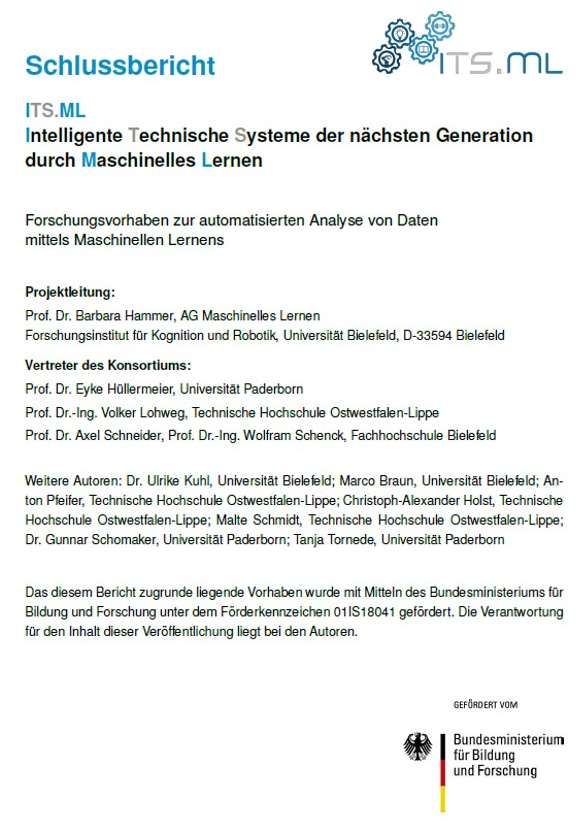The aim of the research project was to make machine learning (ML) sustainably available for Intelligent Technical Systems (ITS) along the entire value chain and to establish ML as a service, especially for small and medium-sized enterprises (SMEs). This requires development and transfer of the latest ML innovations to the fields of action central to ITS in order to bring ML technologies into products and production chains. Conversely, raising awareness among regional companies of when and how ML can be integrated into agile business models and production chains succeeded.
The term ITS refers to technologies that build on intelligent processes at their core and realize a specific function in specific hardware or physical environments. Examples include intelligent optical systems, quality monitoring components in Industry 4.0 or components in medical technology. ITS form a core component relevant for industrial successes in automation or quality control, for example - however, the efficient use of machine learning often faces challenges here: limited amounts of data are available in some cases, data in practice is subject to strong variations and drift, and hardware limitations or restrictions due to the physical conditions must be taken into account. In addition, evaluation in practical operation is a major challenge, since it is often not possible to test efficiently and comprehensively in real conditions.
The ITS.ML project pursued the strategy of developing and providing methods, materials and information. These support companies on their way to using ML in the context of ITS and enable them to evaluate and apply methodologies safely and profitably even without their own research expertise or dedicated research department.


